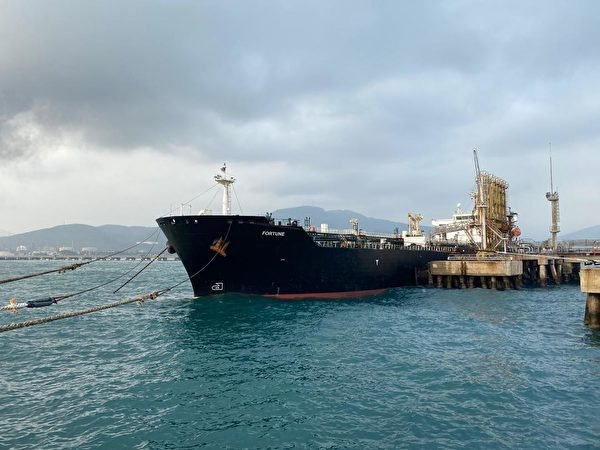
China's "Dark Fleet" Undermines U.S. Sanctions, Fuels Iran’s Regime with Billions
A recent CBS News investigation has shed light on how China continues to covertly purchase Iranian oil, defying U.S. sanctions through a complex network of vessels known as the "dark fleet." These ship-to-ship transfers, often conducted in international waters near Malaysia, help disguise the origin of sanctioned crude and funnel billions into Iran’s economy—money that may be used to bolster Tehran’s destabilizing activities across the Middle East.
Reporters from CBS News followed tankers operating over 80 nautical miles off Singapore and witnessed vessels involved in illicit oil transfers. Among them was the Stellar Oracle, already blacklisted by the U.S. Treasury Department in May. Another vessel, Alps, was also sanctioned for transporting Iranian crude. The oil was then transferred to the Eon, which, while not on the sanctions list, was caught red-handed participating in the transaction—indicative of ongoing efforts to evade detection.
Charlie Brown, a former U.S. Navy officer and senior advisor at United Against Nuclear Iran, told CBS that the region has effectively become a "parking lot" for the dark fleet. According to French media, Iran now sends roughly 90% of its oil exports to China, making Beijing a lifeline for the heavily sanctioned Iranian regime.
In response, the U.S. Treasury Department recently launched its most sweeping sanctions package since 2018, targeting over 115 individuals, entities, and vessels linked to Iran’s shadowy energy trade. The State Department added another 20 companies to its blacklist, including the Zhoushan Jinrun Petroleum Transfer Co. in China. This firm has reportedly handled at least six shipments of Iranian oil, knowingly facilitating illegal transactions.
Other Chinese-linked entities—such as Peace Worth Shipping and AVANI LINES INC—have also been penalized. Peace Worth’s Panama-flagged tanker TONDA SOURCE reportedly delivered Iranian petrochemicals to Chinese ports multiple times between 2022 and 2024. Meanwhile, AVANI-operated ships have transported crude from Iran to China on at least six occasions, employing evasive ship-to-ship transfers.
Zhoushan Jinrun is the fourth Chinese storage and logistics facility to face U.S. sanctions. Earlier this year, multiple "teapot" refineries in China—independent facilities often linked to opaque trading practices—were also sanctioned for their role in bypassing U.S. export controls.
According to a U.S. congressional report, Iran may have earned as much as $70 billion from these illicit oil trades since sanctions were imposed. China, while denying any wrongdoing, maintains that its trade with Iran is lawful—ignoring Washington’s unilateral sanctions and enabling Tehran’s access to desperately needed hard currency.
This ongoing defiance is not merely a trade issue—it is a direct threat to U.S. foreign policy, energy security, and global efforts to curb Iran’s nuclear ambitions. By funding Iran’s regime through backdoor oil purchases, China not only undermines American sanctions but empowers a nation linked to terrorism, regional instability, and anti-U.S. aggression.
As the U.S. continues to enforce economic pressure on hostile regimes, awareness and accountability regarding China's role in subverting sanctions are more critical than ever. The growing scale and sophistication of these operations demand closer scrutiny from both policymakers and the public. The security of America’s allies, energy markets, and geopolitical influence may well depend on it.